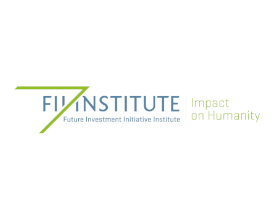Research Chair FII Institute
Research Chair FII InstituteFII Institute
Research Chairs
Chair holder: Daniel Halbheer, Associate Professor, Marketing Department

Business leaders, consumers, and governments alike are increasingly aware of the enormous resource and waste footprints resulting from the linear economy's "take-make-dispose" approach. These footprints are critical drivers of the world's most pressing environmental problems, including global warming, biodiversity loss, and pollution.

To tackle these problems, firms must develop innovations in product design, recovery of end-of-life products, and recycling technologies that enable the transition from a linear to a circular economy that closes the loop. In addition to closing the loop, firms must also find new ways of extending it, for example, through product reuse, repair, and remanufacturing.
Consequently, HEC Paris and the Future Investment Initiative (FII) Institute, a nonprofit foundation, have resolved to enter into a sponsorship agreement, which is intended to establish the terms for the development and implementation of a research chair at HEC Paris on the theme "Business Models for the Circular Economy." The holder of this Chair is Daniel Halbheer, Associate Professor of Marketing.
This research chair aims to develop new business models that drastically reduce resource and environmental footprints and, at the same time, have economic and social benefits. The main focus is on the following aspects of circularity:
-
Designing products for recycling;
-
Building efficient reverse supply chains to recover and recycle end-of-life products;
-
Finding ways of giving products several lives and
-
Getting consumers on board to participate in reverse supply chains and circular initiatives.
About the FII Institute
FII Institute is a global nonprofit foundation with an investment arm and one agenda: Impact on Humanity. Committed to ESG principles, we foster the brightest minds and transform ideas into real-world solutions in five focus areas: AI and Robotics, Education, Healthcare, and Sustainability.
We are in the right place at the right time – when decision-makers, investors, and an engaged generation of youth come together in aspiration, energized, and ready for change. We harness that energy into three pillars – THINK, XCHANGE, ACT – and invest in the innovations that make a difference globally.
Learn more about Daniel Halbheer